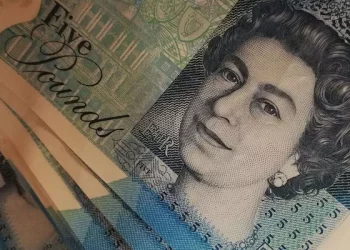In the ever-evolving global economy, staying informed about currency exchange rates is crucial for businesses, investors, and individuals engaging in international transactions. For those involved in transactions between Canada and Bangladesh, understanding the current exchange rate between the Canadian Dollar (CAD) and the Bangladeshi Taka (BDT) is of utmost importance. In this article, we delve into the specifics of the CAD to Taka exchange rate, providing an in-depth analysis of the current scenario, factors influencing the rates, and what it means for various stakeholders.
Understanding the Basics: CAD to Taka Exchange Rate
Before delving into the current exchange rate, it’s essential to have a solid grasp of how exchange rates work. The exchange rate represents the value of one country’s currency concerning another. In the case of CAD to Taka, it signifies how much one Canadian Dollar is equivalent to in Bangladeshi Taka. The exchange rate is dynamic, influenced by a myriad of factors including economic indicators, geopolitical events, and market sentiments.
Current Exchange Rate Analysis
As of the latest available data, the CAD to Taka exchange rate stands at 62.10. This numerical value represents the current strength or weakness of the Canadian Dollar against the Bangladeshi Taka. Analyzing this rate is crucial for businesses engaged in cross-border trade, investors looking for international opportunities, and individuals planning travel or remittances.
See Also:CAD to AED
Factors Influencing the Exchange Rate
Several factors contribute to the fluctuation of exchange rates. Understanding these elements is vital for predicting future trends and making informed decisions in the currency market.
1. Economic Indicators
Economic indicators such as GDP growth, employment rates, and inflation play a significant role in shaping exchange rates. A robust Canadian economy may strengthen the CAD against the Taka, while economic uncertainties can have the opposite effect.
2. Interest Rates
Central banks’ decisions on interest rates impact currency values. Higher interest rates in Canada may attract foreign investors, leading to an increased demand for the Canadian Dollar.
3. Political Stability
Political stability in both Canada and Bangladesh can influence investor confidence and impact the exchange rate. A stable political environment is generally favorable for currency strength.
4. Trade Balances
The balance of trade between two countries affects their currencies. If Canada exports more to Bangladesh than it imports, it could lead to an increased demand for the CAD.
5. Global Events
Geopolitical events and global economic conditions, such as the impact of the COVID-19 pandemic, can have widespread effects on exchange rates. Uncertainties may lead to currency volatility.
Historical Perspective: CAD to Taka Trends
To gain a more comprehensive understanding of the current exchange rate, it’s beneficial to look at historical trends. Analyzing past performance can provide insights into potential future movements and help stakeholders make informed decisions.
Impact on Businesses
The CAD to Taka exchange rate has a direct impact on businesses engaged in international trade between Canada and Bangladesh. Importers and exporters need to be vigilant about currency fluctuations, as it can affect the cost of goods and profit margins. Implementing effective risk management strategies, such as hedging, becomes crucial for mitigating currency-related risks.
Investor Considerations
For investors eyeing opportunities in either Canada or Bangladesh, the exchange rate is a critical factor. A favorable exchange rate can enhance investment returns, while an unfavorable rate may erode profits. Conducting thorough research and monitoring currency trends are essential steps for investors seeking to optimize their portfolios.
Tourism and Remittances
Individuals planning travel or sending remittances from Canada to Bangladesh or vice versa should closely monitor the exchange rate. A favorable rate can result in cost savings for travelers, while remitters may seek opportune moments to send funds when the exchange rate is favorable.
Government Intervention and Policies
Governments play a pivotal role in influencing exchange rates through various policies and interventions. Understanding the stance of both the Canadian and Bangladeshi governments on economic and monetary issues can provide insights into potential future movements in the CAD to Taka exchange rate.
Conclusion
In conclusion, the CAD to Taka exchange rate is a dynamic and crucial aspect of the international financial landscape. Businesses, investors, and individuals must stay informed about the factors influencing these rates to make sound financial decisions. Whether engaged in trade, investment, or personal transactions, a thorough understanding of the current exchange rate and its implications is imperative for navigating the complex world of international finance.
Related Topics:
Current CAD Exchange Rate: How Much Is CAD to PKR?
Current CAD Exchange Rate: How Much Is CAD to Naira?
Current CAD to MXN Exchange Rate


























